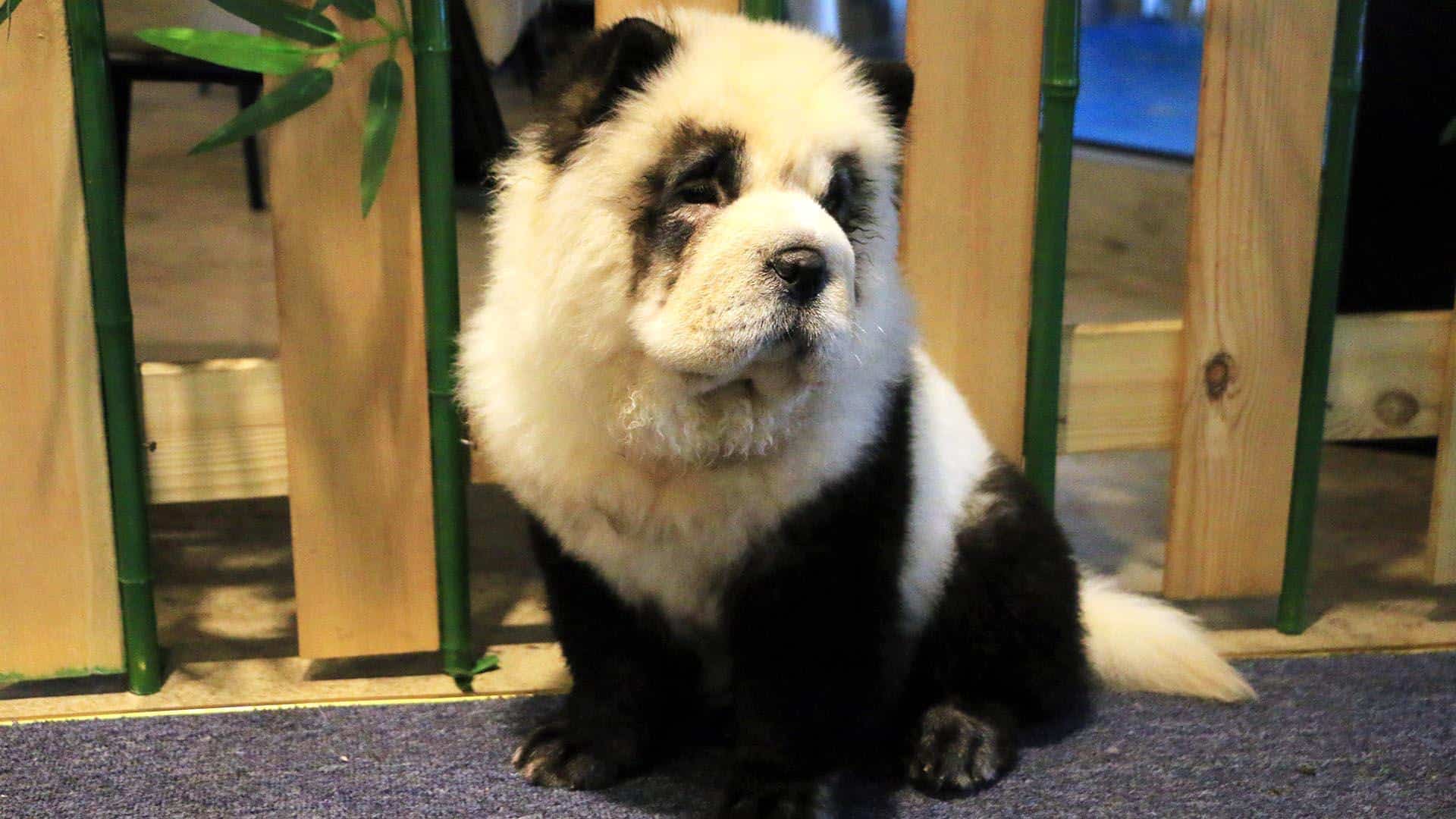Olvasd el/hallgasd meg a szöveget, majd válaszolj a kérdésekre!
A zoo in China dyed two Chow Chow dogs black and white to make them look like panda bears. The dogs have been on display at Taizhou Zoo in the eastern province of Jiangsu since May 1 and – not surprisingly – have caused a bit of a furore.
Chinese state media has accused the zoo of trying to deceive visitors into thinking the animals are actual pandas. Zoo officials told state media the Chow Chows – a fluffy dog breed originally from northern China – were painted to look like giant pandas but the zoo wasn’t trying to fool anyone. They said the dogs are labelled as ‘panda dogs’, making it clear they are not real panda bears.
Video footage shared online shows the ‘panda dogs’ wagging their tale, something you’re unlikely to see a real panda do. Meanwhile people on social media said dying a dog’s fur is cruel.
‘It is not funny at all to dye Chow Chow dogs to attract tourists,’ one commenter wrote on the social media platform Weibo. ‘Their fragile skin and naturally thick coats make them susceptible to skin diseases.’
Taizhou Zoo, however, denied it had a negative affect on dogs, telling Qilu Evening News: ‘Normal people dye their hair. ‘Dogs can dye their hair, too. It’s the same as hair.’
Pandas are native to China and an international symbol of the country.
source: Metro
Decide if the statements are true or false.
1)The zoo will continue to dye dogs to resemble other animals in the future.
2)The zoo was praised by Chinese state media for their creative approach.
3)The video footage displayed the ‘panda dogs’ wagging their tails, a behavior uncommon in real pandas.
4)Animal rights organizations have criticized the zoo’s actions.
5)The zoo admitted to causing harm to the dogs by dyeing their fur.
Megoldás:
1) Not Given – This might be a very logical prediction but there is no information in the text to prove this.
2) False – Exaggerates the sentiment expressed in the text, misrepresenting the factual data.
3) True
4) Not Given – Maybe animal rights organizations have criticized the zoo’s actions, there is no information in the text to either prove or disprove that.
5) False – This statement implies that the zoo admitted to causing harm to the dogs, but the text says they denied any negative effects.
Vocabulary
| on display | kiállítva |
| province | tartomány |
| furore | felháborodás |
| to accuse someone of | megvádolni valakit valamivel |
| to deceive | megtéveszteni |
| fluffy dog breed | bolyhos kutyafajta |
| to label | felcímkézni |
| to make it clear | tisztázni |
| video footage | videofelvétel |
| to wag | csóválni |
| to be unlikely to | nem valószínű, hogy |
| to dye | befesteni |
| fragile | törékeny |
| thick coats | vastag bundák |
| to be susceptible to | érzékeny valamire |
| to deny | megtagadni |



